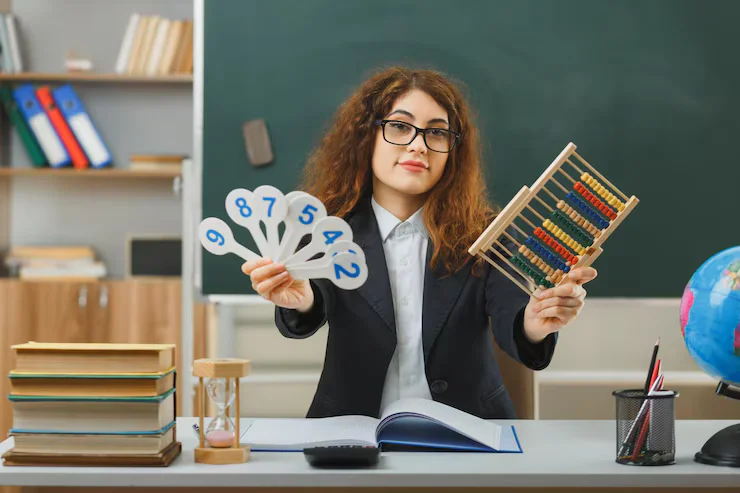The current global environment requires teachers to adapt their responsibilities at a fast pace. Educational institutions modify their operational structures because of technological progress, shifting student populations, and worldwide emergencies. The educational approach of the past relied on lecturing as its main teaching method. Education needs to transform due to its dynamic nature in order to keep pace with the changing world. Teachers must acquire adaptability, along with innovative thinking and forward-looking approaches, to meet the complex needs of their students in today’s educational environment.
Students need educational support that goes beyond traditional academic achievement standards. Educational institutions now concentrate on teaching students social-emotional skills, digital competencies, and workforce-readiness mindsets. Teachers must deliver educational support to students who learn differently, come from diverse cultural backgrounds, and possess individual abilities. Teachers must modify their educational approaches to maintain their effectiveness and stay relevant. The following article demonstrates how teachers can adapt to changing educational needs while stressing the need for continuous professional growth through teaching master’s degree programs.
Embracing Technology in the Classroom
Education has experienced a major transformation because technology integration has become widespread in educational institutions. Modern classrooms heavily rely on digital tools, which include interactive whiteboards and learning management systems (LMS), as well as educational applications. Technology enables both educational enhancement and personalization of student learning experiences. Through platforms that monitor student development, teachers can create customized educational content that addresses individual learning requirements and provides specific support to each student—one of the many evolving skills needed for today’s teaching careers.
The adoption of technology helps students develop essential digital competencies, which will support their future employment needs. The teaching profession requires educators to develop mastery of multiple technological resources while maintaining continuous education about the latest developments in educational technology. Teachers need to welcome new educational resources while testing different instructional methods and experimenting with digital methods. Teachers who stay updated with technological developments create educational environments that offer engaging digital experiences to modern students who have grown up with technology.
Shifting Pedagogical Strategies
Teachers who were limited to classroom teaching roles as the “sage on the stage” now face a changed educational landscape. Student-centered learning represents a fundamental shift that teachers need to adopt in their educational practices. Teachers now help students navigate learning while giving them full participation in their academic journey. Teachers need to completely transform their lesson planning methods for this shift to occur. Student-centered approaches, such as inquiry-based learning and project-based learning, serve as powerful educational tools to develop essential skills, including critical thinking, teamwork, and problem-solving, that modern society values.
The classroom success of diverse students depends significantly on differentiating their instruction. Students have different learning preferences, so traditional teaching methods, which use a single approach, often overlook the needs of many learners. Each student requires unique teaching strategies that address their learning preferences, abilities, and challenges. Teachers should use a combination of visual teaching methods alongside hands-on experiences with group assignments and personalized instruction to help their students learn effectively. Educational success for every student requires teachers to customize their teaching strategies to accommodate the diverse learners in their classrooms.
Addressing Socio-Emotional Learning (SEL)
Academic knowledge receives more attention because social-emotional learning (SEL) helps teachers focus on the complete development of students. Students acquire necessary skills through SEL, which include self-awareness, emotional regulation, empathy, and relationship-building. Students require these essential abilities to handle modern life challenges in both academic and non-academic environments.
Teachers need to establish supportive learning environments that allow students to share their thoughts freely. Daily classroom instruction must incorporate SEL practices that involve students in activities that enhance their emotional intelligence. Educators who understand their students’ emotional needs succeed in supporting them during personal struggles, which improves academic success and overall well-being.
The Importance of Continuing Education: Why Pursue a Master’s Degree in Teaching
Educational professionals face increasing demands that make continuous learning essential for their profession. The acquisition of a teaching master’s degree offers multiple advantages that help teachers maintain their classroom effectiveness and keep their skills current. Through advanced educational programs, teachers have the opportunity to deepen their understanding of educational theories, alongside research-driven best practices and modern teaching methods.
A teaching master’s program teaches students vital leadership competencies, which modern teaching demands from educators who lead classrooms while working with colleagues and engaging parents and communities. The curriculum of a master’s program teaches teachers about designing curricula, assessing students, classroom management techniques, and educational leadership practices, which lead to better academic performance.
A master’s degree provides access to more professional prospects, which enhances career prospects. Teachers who earn master’s degrees in teaching typically become qualified to lead their departments or serve as instructional coordinators before advancing to school administration roles. Through these leadership positions, teachers gain the power to shape educational policies, which expands their educational influence on the broader system. The value of educational investment becomes clearer when we consider that individuals with master’s degrees typically receive higher salaries.
Students who continue their education become more capable of addressing the developing requirements of their learners. Master’s degree programs provide academic knowledge alongside practical methods for addressing evolving educational needs. The master’s in teaching program at Grand Canyon University serves as an outstanding starting point for those who want to improve their teaching profession.
Don’t stop now—here are more pieces that bring even greater clarity to the subject.
Fostering Inclusive and Culturally Responsive Classrooms
Teachers must master the ability to create inclusive learning spaces when they teach students from diverse backgrounds. The diversity of students requires teachers to maintain both respect and appreciation for their varied cultural backgrounds. A culturally responsive teaching method requires teachers to modify their lessons for relevance while maintaining respect toward students’ diverse cultural backgrounds.
The promotion of inclusivity occurs when teachers utilize educational materials from diverse cultures, as well as historical illustrations that depict various cultural experiences. Teachers should support students in expressing their distinct perspectives through classroom activities, making every student’s voice important. The teaching approach known as culturally responsive teaching enables students to become more involved and helps develop students who are both globally conscious and empathetic.
Engaging with the Broader Educational Community
Education extends beyond classroom learning because it encompasses the entire educational environment. Teachers should maintain active participation in the academic community through professional learning communities (PLCs), together with conferences and workshops. Teachers who work together can exchange valuable information about teaching strategies, which helps them develop their instructional methods.
Teachers who network with their peers in the education field receive access to fresh developments in educational research as well as policy changes. The teaching community provides teachers with opportunities to serve as mentors while actively participating in educational improvement initiatives that benefit the entire teaching profession.
Measuring and Reflecting on Impact
Teaching professionals who want to adapt to changing needs must first measure their impact before reflection. Teachers need to continuously evaluate their instructional methods to confirm their effectiveness for student learning needs. The assessment process encompasses both data-driven student progress tracking and feedback collection from students and colleagues, as well as periodic reviews of teaching practices.
Through self-reflection, teachers discover areas that need development and adjust their teaching approaches accordingly. A growth mindset enables teachers to enhance their skills, which results in better support for student needs. Educators must perform an ongoing cycle of evaluation and improvement to remain effective in the modern educational environment.
Conclusion
Teachers need adaptability to meet the complex and diverse educational requirements of modern students. Teachers maintain their relevance through various methods, including the adoption of technology, promotion of social-emotional learning, and the implementation of inclusive educational practices. A master’s in teaching degree provides teachers with the essential abilities to succeed in the evolving academic environment. Teachers who dedicate themselves to professional growth while actively serving the diverse needs of students will maintain their important role in educational development.
Hungry for more knowledge? Our full library is open to explore!







